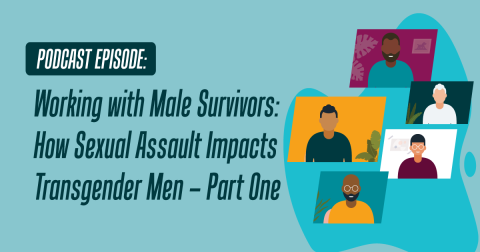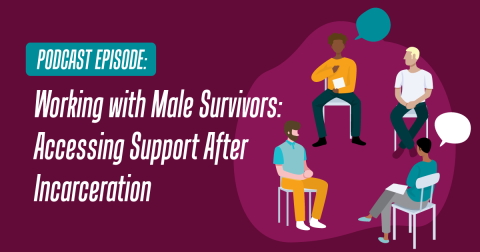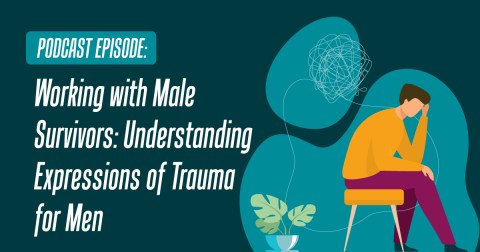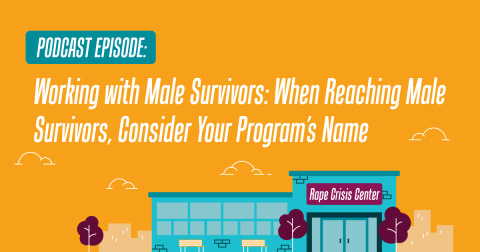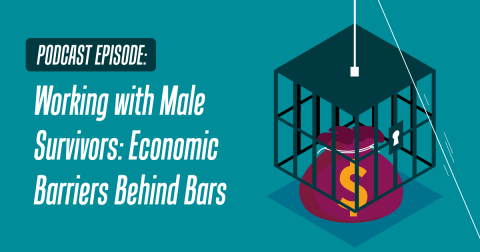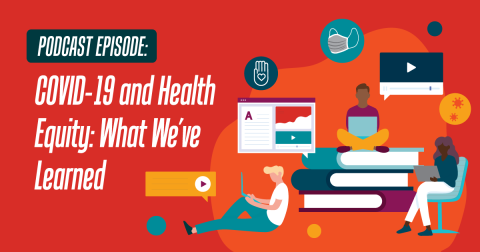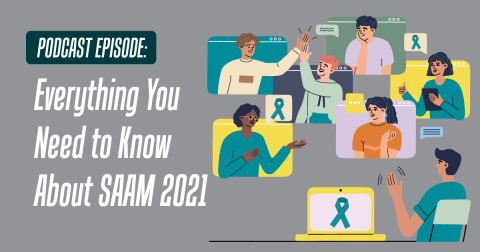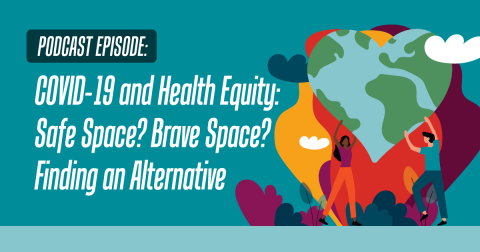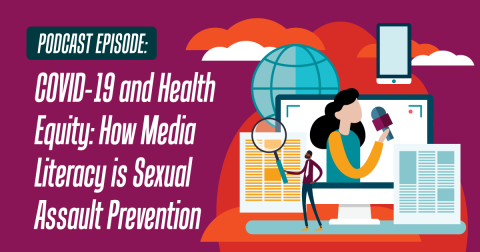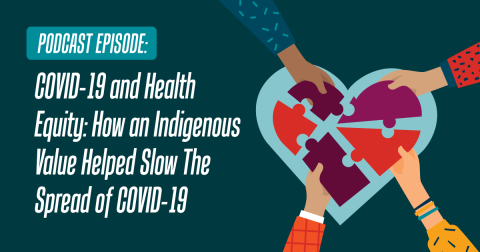Chad Sniffen has been with the National Sexual Violence Resource Center since 2015, where he is currently the Website Administrator. He is also the Director of Research and Evaluation for RALIANCE, a national partnership that includes NSVRC.
Chad has worked or volunteered in the movements against sexual and domestic violence as a prevention educator, victim advocate, researcher, women’s self-defense instructor, and board member since 1999. He has also worked for community rape crisis and domestic violence programs in California and Arizona, and campus prevention programs at the University of Arizona and the University of California, Davis. He earned a Master of Public Health degree from the University of Arizona in 2007.
- April 21, 2021
- Chad Sniffen
michael munson joins NSVRC’s Louie Marven to talk about working with transgender men and transmasculine survivors. In this first part of a two-part conversation, michael talks about foundational concepts of gender relevant to working with trans men and transmasculine folks, and common reactions to sexual assault that may be especially relevant for advocates to understand in working with trans men and transmaculine survivors. michael is the executive director of FORGE. Participants michael munson, executive director, FORGE Louie Marven, NSVRC Training Specialist This resource is part of
- April 19, 2021
- Chad Sniffen
Tonjie Reese, who was the Senior Program Officer at Just Detention International at the time of this recording, talks with Louie Marven from NSVRC about working with male survivors who are formerly incarcerated. JDI supports survivors who are incarcerated and advocates who work with survivors who are incarcerated, and there are lots of opportunities for advocates to support survivors as they reenter the community. Participants Louie Marven, Training Specialist, NSVRC Tonjie Reese, Senior Program Officer, Just Detention International This resource is part of Working with Male Survivors of
- April 08, 2021
- Chad Sniffen
Kenton Kirby joins NSVRC’s Louie Marven to talk about understanding expressions of trauma for men. Kenton is the Director of Practice at the Center for Court Innovation, and in this podcast, he addresses how advocates at sexual assault centers can learn from his work to create safety for a young man who has been harmed to talk about that harm, some of the common ways men express trauma, and more. Participants Kenton Kirby, Director of Practice, Center for Court Innovation Louie Marven, NSVRC Training Specialist This resource is part of Working with Male Survivors of Sexual Violence. This
- April 07, 2021
- Chad Sniffen
Geoff Landers-Nolan joins NSVRC’s Louie Marven to talk about reaching male survivors, and especially considering a sexual assault program’s name in being accessible to male survivors. Geoff is a Sexual Assault Counselor/Therapist at Centre Safe in State College, Pennsylvania. Participants Geoff Landers-Nolan, Sexual Assault Counselor/Therapist, Centre Safe in State College, Pennsylvania Louie Marven, NSVRC Training Specialist This resource is part of Working with Male Survivors of Sexual Violence. This episode was supported by Grant No. 2016-TA-AX-K035 awarded by the Office on Violence
- April 07, 2021
- Chad Sniffen
Tonjie Reese, who was the Senior Program Officer at Just Detention International at the time of this recording, talks with Louie Marven from NSVRC about working with male survivors who are incarcerated. Tonjie highlights economic barriers and racial justice issues, and shares tips for advocates on hotline services, reaching survivors through inmate education efforts, and more. Participants Louie Marven, Training Specialist, NSVRC Tonjie Reese, Senior Program Officer, Just Detention International This resource is part of Working with Male Survivors of Sexual Violence. This episode was
- March 22, 2021
- Chad Sniffen
In the final episode of our COVID-19 and Health Equity series, NSVRC’s Yolanda Edrington, Louie Marven, and Mo Lewis discuss what they learned during the series, what touched their hearts, and how their perspectives have shifted. Participants: Yolanda Edrington, NSVRC Director Louie Marven, NSVRC Training Specialist Mo Lewis, NSVRC Prevention Specialist
- March 17, 2021
- Chad Sniffen
April is Sexual Assault Awareness Month, and in this episode, we’re exploring this year’s campaign, We Can Build Safe Online Spaces. Listen as NSVRC’s Susan Sullivan explains why 2021 was the right year for this campaign, provides an overview of new resources that allow you to easily host an online SAAM event, and shares other ways you can get involved and make a difference during SAAM. Participants Susan Sullivan, NSVRC Prevention Campaign Specialist Megan Thomas, NSVRC Communications Specialist
- March 16, 2021
- Chad Sniffen
The terms “safe space” and “brave space” are used often in the movement to end sexual violence, but each has their limitations and drawbacks. So, inspired by adrienne maree brown’s Emergent Strategy: Shaping Change, Changing Worlds, the North Carolina Coalition to End Sexual Assault (NCCASA) proposed a new framework called Emergent Space that would create spaces of growth, learning, and sharing of marginalized experiences. In the sixth episode of our COVID-19 and Health Equity series, listen as NSVRC’s Louie Marven talks with NCCASA’s Montia Daniels, Shareen El Naga, and Chris Croft about
- March 03, 2021
- Chad Sniffen
In the fifth episode of our COVID-19 and Health Equity series, NSVRC’s Laura Palumbo talks with Tonjie Reese, a Detroit native, preventionist, storyteller, and creative, about why media literacy is so important and how to shift our approaches to prevention during this pandemic. Participants Laura Palumbo, NSVRC Tonjie Reese, eleven24
- February 24, 2021
- Chad Sniffen
We know that community connectedness is an important part of preventing sexual assault and abuse — but it’s also crucial for preventing all public health issues, including the COVID-19 pandemic. In the fourth episode of our COVID-19 and Health Equity series, we explore how Fort Lewis College in Durango, Colorado embraced the Navajo value of K’é, which emphasizes kinship and community, as part of their plan to slow the spread of COVID-19. Listen as we talk with Ally Gee, a senior Public Health Major at Fort Lewis College; Dr. Sara Newman, Assistant Professor of Public Health at Fort
Pagination
- Page 1
- Next page

